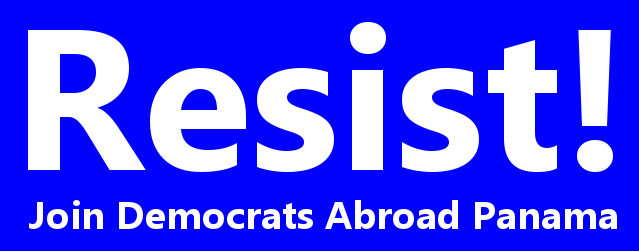
People who despise one another
close ranks behind two newspapers
by Eric Jackson
Panama is not known as a society that easily lends itself to gestures of solidarity. Because of a culture of fraud that’s called “juega vivo” in Panamanian Spanish, people here hesitate to back any cause because they think that someone might be taking advantage of them.
Perhaps Washington is counting on that. Last year the US Treasury’s Office of Foreign Asset Control complained of a “Waked Money Laundering Organization” said to be led by two related businessmen, Panamanian Abdul Waked and his Colombian nephew Nidal Waked. The latter was charged in a US indictment, arrested and extradited from Colombia. US prosecutors are asking for a 50-year prison sentence. The two men, dozens of businesses and six other individuals were put on the Clinton List, membership on which makes it a crime for any US citizen to have any economic dealings with them.
As far as has been made known to the public there are no charges against Abdul Waked, who made his fortune mainly in the Colon Free Zone but has for a number of years dedicated most of his efforts to publishing two newspapers, La Estrella de Panama and El Siglo. He has demanded some showing of proof, but US authorities, including the courts now, maintain that placement on the Clinton List is a non-judicial administrative move for which there is no recourse to the courts nor any requirement of any sort of proof. The US government has never stated what, if anything, it has against Abdul Waked.
Trump’s Homeland Security Secretary, General John F. Kelly, did however state a general case against Abdul Waked back in 2015 when he was head of the US Southern Command. Abdul Waked was born in Lebanon and Kelly cast general suspicion on all Lebanese in Latin America in a statement to the US Senate Armed Services Committee:
The terrorist group Lebanese Hezbollah — which has long viewed the region as a potential attack venue against Israeli or other Western targets — has supporters and sympathizers in Lebanese diaspora communities in Latin America, some of whom are involved in lucrative illicit activities like money laundering and trafficking in counterfeit goods and drugs. These clan-based criminal networks exploit corruption and lax law enforcement in places like … the Colon Free Trade Zone in Panama and generate revenue, an unknown amount of which is transferred to Lebanese Hezbollah.
For more than one year the two newspapers were given a waiver, but the Trump administration decided not to extend these past June. Were it just newsprint and ink having to be purchased elsewhere it would be a minor problem, but all manner of banking, telecommunications, wire service, advertising and other transactions are affected. The newspapers have had to lay off about one-third of their employees. There are no longer Saturday or Sunday print editions, and the printed papers have fewer pages now.
It has led both a jailed Ricardo Martinelli — who owns competing newspapers — and a Varela administration that’s trying to get Martinelli extradited to Panama to stand trial for various crimes to issue statements asking the United States to call off its actions against La Estrella and El Siglo. Likewise, both business and labor leaders and rival politicians from across all of the spectrum — including most of Panama’s living ex-presidents — have signed onto statements calling for the US government to back down.
The Varela administration’s muted protest was in the form of a request by Vice President and Foreign Minister Isabel de Saint Malo to extend a waiver from Clinton List sanctions on the two newspapers. There has been some criticism for the timidity of this response, some of which might be dismissed a posturing ahead of the 2019 elections. It seems instead that defense of La Estrella and El Siglo is the nationalist cause of the moment and that the litany of grievances goes well beyond this case. It’s easier for that to be so because Abdul Waked has steered the papers’ editorial line away from the partisan alignments that are the norm here. Their op-ed columnists represent most shades of Panamanian public opinion, so that the periodicals are seen as truly independent and the suspicion is that the United States — or President Varela — may want to see a forced sale that aligns them with a particular political agenda, perhaps a foreign one.
~ ~ ~
These announcements are interactive. Click on them for more information.










